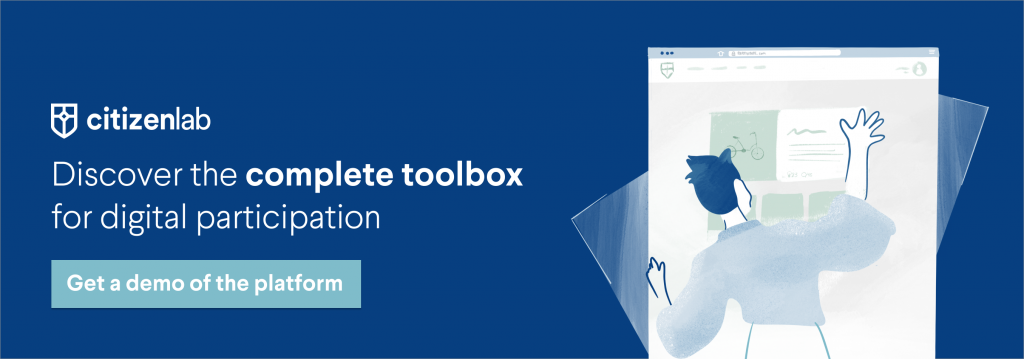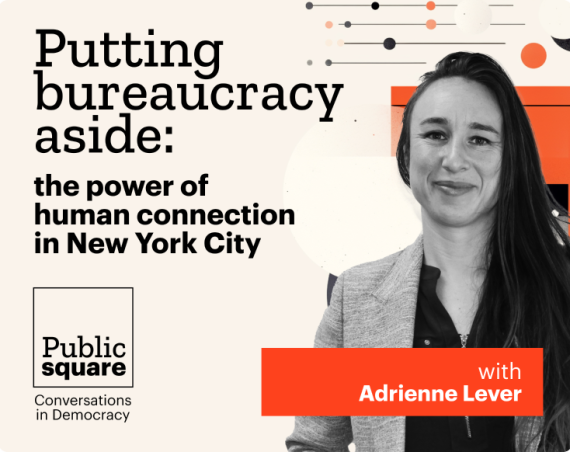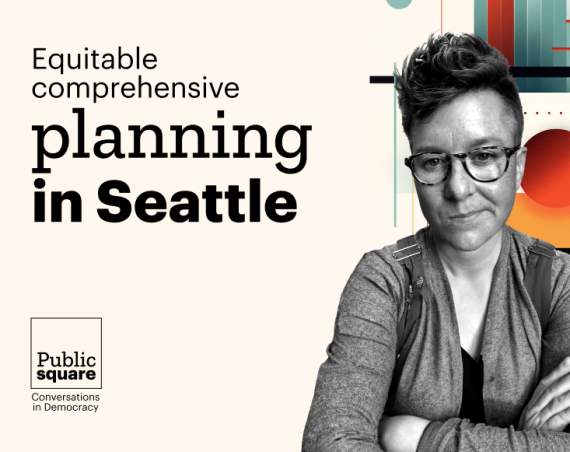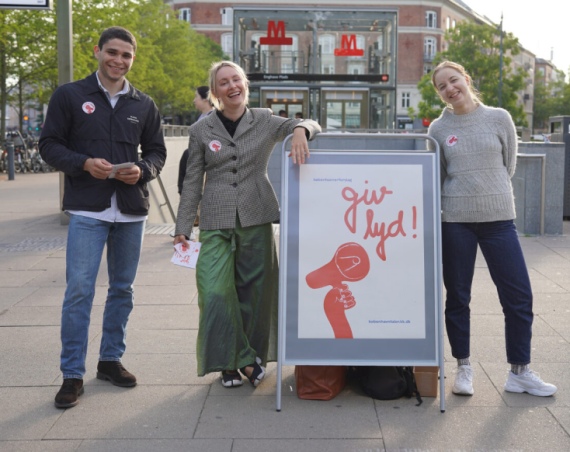Citizen initiatives are gaining popularity, citizen assemblies are proposed as a solution to defrost polarised debate, and overall, there are more participation methods to choose from than ever before.
We see that citizens are becoming increasingly more vocal about their concerns and opinions, even outside of election times. The two-yearly stop at the ballot box and the top-down policymaking of old-school democracy simply don’t cut it anymore. Take a look at the emergence of movements like the Extinction Rebellion, for example, which aims to pressure governments into climate action through civil disobedience. Just this past spring, teenagers across the world skipped school and took to the streets to demand immediate climate action. And let’s not forget that, with social media at our fingertips, every citizen is just a tweet or click away from voicing their opinion.
As a politician, policymaker or local administrator, these changes may seem daunting. We’ve come a long way since the old days: the future of democracy is co-led by citizens, and especially the younger generation is all about a digital, inclusive and local approach. Responding to growing citizen demands requires a fundamental change of course. And let’s be honest: most governmental bodies are not known for their swift adjustment to change. Besides, opening up the public debate in the online realm, where anonymous trolls have free reign, may feel like putting yourself and your policies up for criticism. As a policymaker, you have a lot on your plate, and dealing with irrelevant spam isn’t something you have the time or energy for.
A new wind, a voice for all
But guess what: citizens love to be heard. They will voice their opinions whether you provide them with a platform or not. And what’s more: once you’ve convinced them that their voice matters, they actually take participation pretty seriously. How can we tell? If we look at our data, we see that the percentage of spam comments on our platforms is remarkably low. Across all tenants, the percentage of ideas reported as spam was as low as 0.186%. Only 1.178% of all comments were deleted by admins. That means that, on average, 99.8% of the posted ideas are valid, and 98.8% of all comments have an added value.
In this context, it’s easy to see how this new democratic wind can be beneficial to you as a policymaker. In fact, citizen participation makes your job easier than it has ever been before. So let’s explore a few reasons why you as a policymaker should care about citizen participation.
1. You build trust, which leads to re-election

As a policymaker, winning your citizens’ trust and support for your policies and persona is of the utmost importance. Though a healthy dose of skepticism in citizens can be fruitful, a strong mutual bond between citizens and their representatives is absolutely essential to building a sustainable society that benefits all. Simply put, if you fail to win your citizens’ trust, they will make electoral decisions that may affect your position.
Citizen participation is a great way to open up the social debate and offer your citizens a voice in policymaking. By showing them that you are willing to hear their questions, concerns,
2. You create legitimacy for your position and policies

Citizen participation makes it easier than ever to be a popular politician. Participation methods such as idea-collection or participatory budgeting offer you invaluable insight into the matters your citizens find important.
In a top-down system, deciding on and implementing new policies is always a bit of a shot in the dark. Representatives can not predict what their citizens
3. You won’t be surprised during election times

Okay, agreed, it’s never possible to predict how citizens are going to vote. Electoral surprises have happened since the birth of the democratic system and will continue to happen for as long as we can imagine. An election is a snapshot of citizens’ current sentiments and political sense of wellbeing, and that can be hard to gauge.
However, citizen participation helps you to eliminate a part of that element of surprise. It’s simple: once you know which topics matter most to your citizens, it becomes a lot easier to evaluate the success and popularity of an ending policy cycle. Did the administration address the topics that citizens prioritised? Did it take citizens’ opinions into account? Depending on the answers, it’s easier to predict how citizens will likely vote.
4. You’ll boost your community’s sense of well-being

Making your citizens feel truly represented may boost their sense of well-being. In local communities, many people may have their own ideas on what the town or city needs, what the new square should look like or which policies are on top of the priority list. Making them feel like their ideas matter and are taken into account will help you to build a stronger, happier community. And that will, again, pay off during election time.
Besides, we tend to underestimate what authentic, direct communication can do in times of information overload and “fake news”. That counts for citizens and governments as well. By engaging in true and honest dialogue you
5. You’ll make a smart investment

A common concern about citizen participation is the cost. Most (local) governments, particularly smaller ones, don’t work with big budgets. In that case, participation projects can seem like an extra, non-essential cost. But as it turns out, this concern is not necessarily justified.
As citizen participation gives you more insight into what citizens want and need, it helps you to allocate the city budgets more accurately and to invest the money in what matters most. This way, the budget you do have is spent in the best possible way. But citizen participation can also literally save money. While there will always be a start-up cost, the benefits soon outweigh that first investment. For a more detailed overview of the exact cost of citizen participation, read more here.
Get started with citizen partici pation!
Curious to see what participation could look like in your community? Our experts can’t wait to guide you through the platform and its features.






